
Michele Placido is an Italian actor, director and screenwriter. He began his career on stage, and first gained mainstream attention through a series of roles in films directed by the likes of Mario Monicelli and Marco Bellocchio, winning the Berlinale's Silver Bear for Best Actor for his performance in the 1979 film Ernesto. He is known internationally for portraying police inspector Corrado Cattani on the crime drama television series La piovra (1984–2001). Placido's directorial debut, Pummarò, was screened Un Certain Regard at the 1990 Cannes Film Festival. Three of his films have competed for the Golden Lion at the Venice Film Festival. He is a five-time Nastro d'Argento and four-time David di Donatello winner. In 2021, Placido was appointed President of the Teatro Comunale in Ferrara.

Kissing Jessica Stein is a 2001 American independent romantic comedy film, written and co-produced by the film's stars, Jennifer Westfeldt and Heather Juergensen. The film also stars Tovah Feldshuh and is directed by Charles Herman-Wurmfeld. It is one of the earlier film appearances of actors Jon Hamm and Michael Showalter. The film is based on a scene from the 1997 off-Broadway play by Westfeldt and Juergensen called Lipschtick.

The Ignorant Fairies is a 2001 Italian drama film directed by Turkish-Italian film director Ferzan Özpetek.

Mysterious Skin is a 2004 coming-of-age drama film written, produced, and directed by Gregg Araki, adapted from Scott Heim's 1995 novel of the same name. The film tells the story of two pre-adolescent boys who both experienced sexual abuse as children, and how it affects their lives in different ways into their young adulthood. One boy becomes a reckless, sexually adventurous sex worker, while the other retreats into a reclusive fantasy of alien abduction.
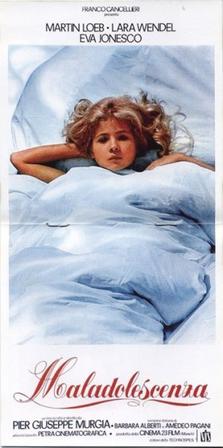
Maladolescenza is a 1977 film directed by Pier Giuseppe Murgia.

Alan Steven Rudolph is an American film director and screenwriter.
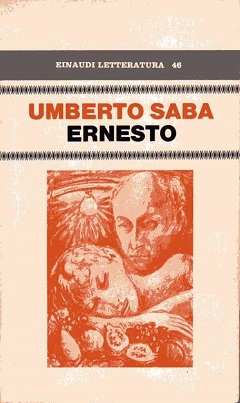
Ernesto is an unfinished novel by Umberto Saba (1883–1957), written in 1953 and published posthumously in 1975. It was his only work of fiction. It was largely autobiographical, including details about the title character's friendship and love for a violinist, and his attachment to his native Trieste. As one critic says: "he revisited not only the scenes but also the moods of his puberty".
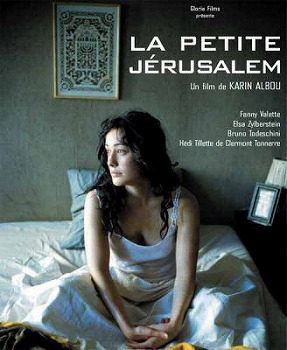
Little Jerusalem is a 2005 French drama film directed by Karin Albou. Albou's film depicts how the conflict between the rational and the irrational drives the relationships within a Jewish family living in the outskirts of Paris.

Killing Birds is a 1988 Italian horror film starring Lara Wendel and Robert Vaughn. The film is set in Louisiana where Fred Brown returns from the Vietnam war to find his wife in bed with her lover and slaughters the whole family sparing the newborn son. After the massacre, he is attacked by and blinded by a falcon. Twenty years later a group of students led by Steve and Anne meet Brown, and begin their search for a nearly extinct breed of woodpecker and come across grisly occurrences including boys being killed by vengeful zombies.
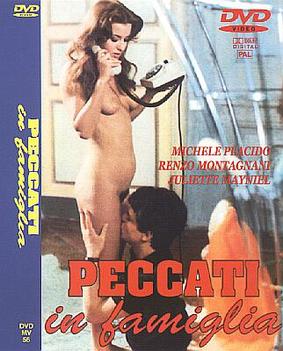
Peccati in famiglia or Sins in the Family/Scandal in the Family is a 1975 Italian erotic drama film directed by Bruno Gaburro. The film starred Michele Placido, Simonetta Stefanelli, Jenny Tamburi and Renzo Montagnani.

Coming Out is a 1989 East German film directed by Heiner Carow and written by Wolfram Witt which deals with the lead character, a high school teacher, "coming out" and accepting himself as gay. It was the last East German film released to the public prior to the German reunification and one of the last films made by DEFA, the East German state film studio, and the only gay-themed feature film that it made.
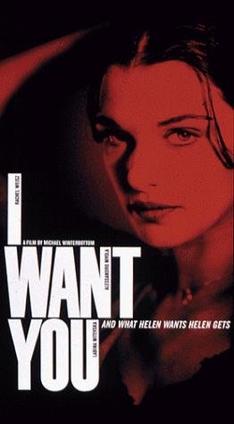
I Want You is a 1998 English crime film directed by Michael Winterbottom and written by Eoin McNamee. It stars Rachel Weisz, Alessandro Nivola, Labina Mitevska, and Luka Petrušić. The film centers on the obsessive infatuation two men have with the same mysterious woman. The film premiered at the 1998 Berlin International Film Festival, where it won a Special Mention Honor for cinematographer Sławomir Idziak.

Tru Loved is a 2008 independent film written and directed by Stewart Wade and starring Najarra Townsend, Jake Abel, Matthew Thompson and Alexandra Paul.

The Vintage is a 1957 American crime drama film directed by Jeffrey Hayden and starring Pier Angeli, Mel Ferrer, John Kerr, Michèle Morgan and Theodore Bikel. The screenplay was written by Michael Blankfort, based on a novel by Ursula Keir. The film was distributed by MGM.
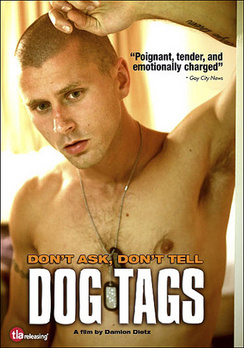
Dog Tags is a 2008 American film written and directed by Damion Dietz and starring Paul Preiss and Bart Fletcher.

Nymphomaniac MANIAC onscreen and in advertising) is a 2013 erotic art film written and directed by Lars von Trier. The film stars Charlotte Gainsbourg, Stellan Skarsgård, Stacy Martin, Shia LaBeouf, Christian Slater, Jamie Bell, Uma Thurman, Jean-Marc Barr, Willem Dafoe, Connie Nielsen, and Mia Goth in her debut. Separated as two-part films, the plot follows Joe, a self-diagnosed "nymphomaniac," who recounts her erotic experiences to a bachelor who helps her recover from an assault. The narrative chronicles Joe's promiscuous life from adolescence to adulthood and is split into eight chapters told across two volumes. The film was originally supposed to be only one complete entry, but, because of its length, von Trier made the decision to split the project into two separate films. Nymphomaniac was an international co-production of Denmark, Belgium, France, and Germany.
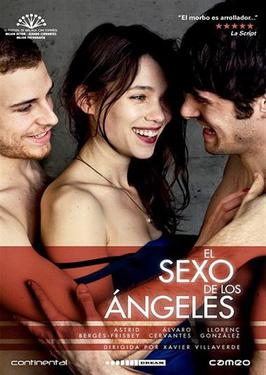
Angels of Sex is a 2012 Spanish film by Xavier Villaverde starring Álvaro Cervantes, Àstrid Bergès-Frisbey, and Llorenç González. It was released in 2012.
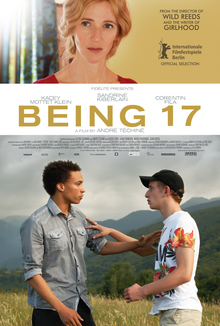
Being 17 is a 2016 French drama film directed by André Téchiné and starring Kacey Mottet Klein, Corentin Fila and Sandrine Kiberlain. The script was written by Téchiné in collaboration with Céline Sciamma. The plot follows the romantic and sexual awakening of two seventeen-year-old boys as their initial animosity, expressed in violence, morphs into love. Being 17 borrows its title from the second half-line of the first verse of Roman, (1870) by Arthur Rimbaud: On n'est pas sérieux quand on a dix-sept ans.

Skins is a 2017 Spanish drama film directed by Eduardo Casanova. It was screened in the Panorama section at the 67th Berlin International Film Festival. The film was produced by Pokeepsie Films and Nadie es Perfecto alongside The Other Side Films.

The Golden Glove is a 2019 internationally co-produced horror drama film directed by Fatih Akin. It was selected to compete for the Golden Bear at the 69th Berlin International Film Festival. The film is an adaptation of Heinz Strunk's eponymous novel and tells the story of the German serial killer Fritz Honka who murdered four women between 1970 and 1975 and hid their body parts in his apartment. The Golden Glove is named after the pub in the red-light district of Hamburg where the disfigured alcoholic Honka met his victims. The Golden Glove is the first film by Fatih Akin to receive an 18 rating in Germany.




















